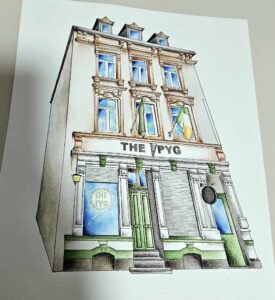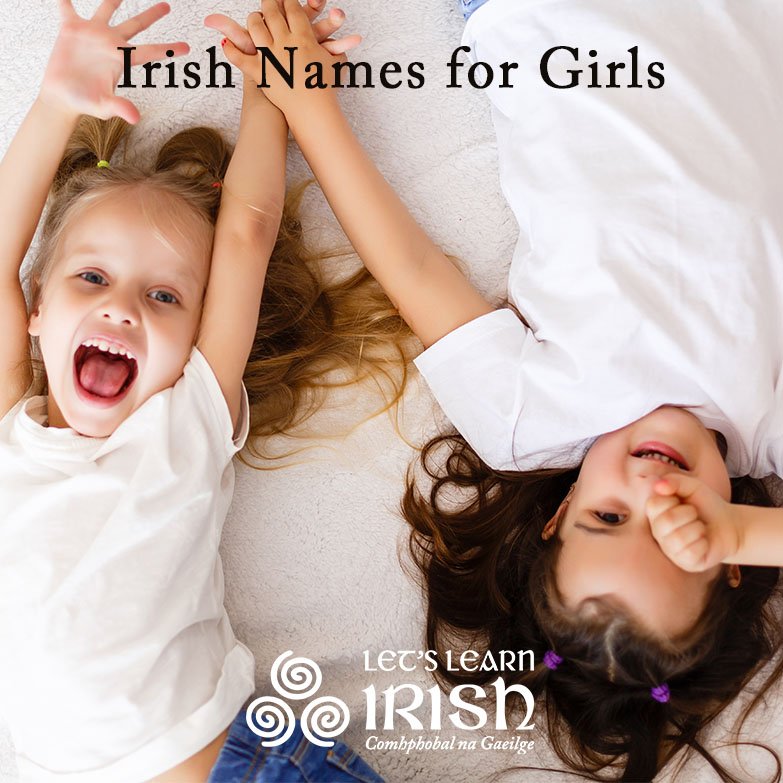Why I’m Learning Irish in Luxembourg

People here often wonder why I’m learning Irish in Luxembourg. “You know that if you speak English, you don’t need to learn Irish to go to Ireland,” they say. Well, maybe learning a language is not about necessity and utility.
Growing up in Luxembourg, a country with less than a million inhabitants, I have a deeper understanding of the importance of a language for a country’s history and culture. Only 52% of the residents of Luxembourg are Luxembourgers and not all of them speak Luxembourgish. I have witnessed so many people moving to Luxembourg for employment reasons and not even trying to learn basic words like ‘Hello’ and ‘Goodbye’ in Luxembourgish. Since they speak French, German or English, they don’t need it to get by.
Fair enough. But to me, this means that they are only taking advantage of all the benefits Luxembourg has to offer without trying to understand its interesting culture and complicated history. I have always admired and supported the few people who made the effort to learn some basic Luxembourgish. This is one of the reasons that motivated me to learn Irish although I’m from Luxembourg myself!

When I heard about the Irish-speaking communities of Ireland slowly having to relocate because of the rising living costs (caused by people moving to Ireland to work for big companies), it reminded me of the situation in my own country. It seems that people value financial wealth more than they value centuries of history and culture. To me, learning a country’s language is a sign of respect and appreciation for what it has to offer.

I grew up speaking Luxembourgish, then I learned German and French. In high school, I learned English and taught myself some Dutch. Then, in university, I had to learn Latin. I’ve always felt comfortable in a multilingual community. Three years ago, I decided to learn Italian. I met some people who were also interested in learning Italian. Reading books in another language turned out to be a conversation starter and a great way to meet new people. I made friends for life and even traveled to Italy with a German friend with whom I enjoyed learning Italian. We even took a two-week language class in Rome together. Those are memories I will cherish forever.
After a few years of intensive studying, traveling all across Italy and living in Rome for six months, I decided that Italian was no longer challenging enough and I was ready to learn a new language. Spanish would have made sense and I probably could have learned it very quickly, but like I said, I wanted something more challenging. Then I traveled to Ireland. When I first landed at the airport in Dublin and saw all the signs written in Irish and couldn’t decipher a word, I was intrigued.

During this trip, locals talked about the importance of the Irish language and my fascination grew. I decided to completely immerse myself in the language and learn more about the rich history of the country. When I finally decided to apply for a three-year program at TU Dublin, it made even more sense for me to keep learning Irish. I saw this as an opportunity to prepare for my big move and a way to be included once I lived there.
There is another reason why I decided to learn Irish. It is more of a personal reason. My family has a history of Alzheimer’s disease. I have witnessed my grandmother’s and her sisters’ mental health declining as the years went by. Now, my mother is displaying the same symptoms. This is a very scary situation to be in: to be unable to prevent it and know that I will probably be affected by it too. However, I have read that the best thing one can do to stimulate one’s brain is to learn a new language. Now, one could argue that I could have learned any language and that may be true, but I think that Irish, as a Celtic language, is so fundamentally different from any other language I have learned so far. I have to completely rethink all the existing grammar structures in my head and use a different approach than the one I am used to. I believe that Irish is giving my brain all the stimulation that it needs.
In conclusion, I feel like learning Irish brings me closer to the people in Ireland and gives me a greater understanding of their fascinating background. Irish challenges me, not only mentally, but also to grow as a person and to be open to a different culture. I’m happy to keep learning Irish in Luxembourg – ar aghaidh linn!
Bígí páirteach!
Join the online Irish community at LetsLearnIrish.com.
Follow on social media @LetsLearnIrish.





